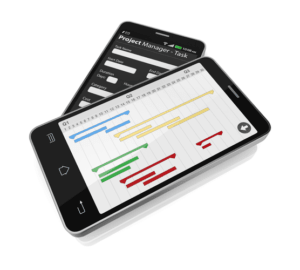
Before they can even take the exam to become a CPA, an accountant needs to complete at least 150 credit hours and earn a bachelor’s degree in accounting or business. Once they pass the exam, accounting professionals must continue their education to stay updated on tax law, tax code, and other vital areas. They likely have more knowledge and experience than general tax preparers and often offer services beyond helping file tax returns. While tax preparers are essential for many individuals and small businesses, there are instances when the expertise of a certified public accountant comes into play.
OTHER TYPES OF CERTIFIED TAX PREPARERS

They abide by the professional ethics and moral code of conduct established by the state boards. Thus, in the event of any irregularities, the state board has the authority to revoke their license. While comparing CPA vs tax preparer, a CPA’s competency is unmatched.

Is a Certified Public Accountant worth it for taxes?
- According to employment website Glassdoor, the base seasonal tax preparer salary averages $15 per hour at H&R Block.
- Learn the differences between various tax preparers so you can determine which best suits your specific tax needs.
- Generally, tax preparers charge a fee based on the number of forms they need to complete and file.
- In addition to preparing financial documents, accountants in an organization work with upper-level management to implement best practices to ensure operations run smoothly and efficiently.
Becoming a CPA involves a rigorous educational journey, including the completion of a bachelor’s degree in accounting or a related field. This comprehensive education equips aspiring CPAs with a solid foundation in accounting principles, financial management, and business ethics. Seasonal tax preparers are paid a base salary plus commission, so their earnings depend on the number of returns they complete. According to employment website Glassdoor, the base seasonal tax preparer salary averages $15 per hour at H&R Block. A tax preparer is anyone who is authorized to prepare federal tax returns. Just like an Enrolled Agent, a CPA is qualified to provide tax services and to represent clients before the IRS.
- To become an accountant, you need to complete a bachelor’s degree in accounting from an accredited college or university.
- There are multiple ways to file your tax return, from free tax filing software to professional tax preparation.
- These individuals are the unsung heroes of tax season, the ones who help us navigate through the labyrinth of tax forms and deadlines.
- Many people and private businesses choose to pay licensed tax preparers to represent them before the IRS.
- Both AICPA and NASBA offer a framework to develop, award, assess, and report CPE programs.
- Then, fulfil the requirements and obtain the PTIN from the IRS after paying $35.95.
Standing with IRS

They have the expertise to analyze tax preparer vs cpa complex financial data, provide strategic financial advice, conduct audits, and even represent clients during IRS audits. These individuals are the unsung heroes of tax season, the ones who help us navigate through the labyrinth of tax forms and deadlines. Their expertise lies in preparing and filing tax returns on behalf of individuals and businesses. Business owners with simple tax filing needs can rely on a tax preparer.
Frequently Asked Questions About Tax Preparer Certification
The 55 US state boards or (BOA) have the statutory authority to issue the CPA license. Each state board has its own educational and experience requirements to fulfil for successful licensure. Hence, you must submit an official application for licensure to the respective BOA. A CPA is a US state board issued accounting license attained after qualifying the Uniform CPA Exam and meeting its educational and experience requirements. Now that we’ve familiarized ourselves with the unique traits of tax preparers and CPAs, it’s time to put them head-to-head and see how they differ in terms of scope of work and qualifications. Get rid Partnership Accounting of the stress of last-minute filing by starting tax preparation early.
- As explained by the American Institute of Certified Public Accountants (AICPA), all CPAs are accountants, but not all accountants are CPAs.
- So, if you’re looking for a trusted financial professional with a broader skillset and a deeper understanding of complex financial matters, a CPA might be the right choice for you.
- CPAs help businesses evaluate investment opportunities, assess risks, and create strategies for growth and profitability.
- They can also assist in tax planning, ensuring that you take advantage of all available deductions and credits while remaining compliant with tax laws.
- Get rid of the stress of last-minute filing by starting tax preparation early.
- Tax prepares are preferred by entities with uncomplicated tax matters.
CPAs must understand local and federal tax laws, and can advise their clients on tax strategy. Deciding what type of tax professional is best for you can be a challenge. Learn the differences between various tax preparers so you can determine Accounting Periods and Methods which best suits your specific tax needs. Yes, CPAs typically charge higher fees due to their advanced skills and range of services.
Stay Up to Date on Tax Laws
Unlike the latter, CPAs hold expertise in various accounting fields other than tax. EA candidates can take any part of the exam four times in each testing window (typically May to February). Individuals can retake the CPA exam as many times as needed, but most states expect candidates to pass each section within 18 months. “Because I focus specifically on tax, I am always aware of emerging trends,” Roberto Done, EA, a tax accountant at D.E Caribe Taxes in the Bronx, told The Balance in a phone interview. CPAs have more in-depth training, making them better equipped for complex financial tasks. Some international candidates qualify for the shorter international qualification examination instead of the standard CPA exam.
